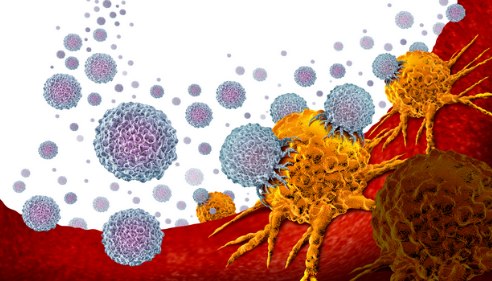Anyone can develop allergies at any age. Most often, allergies developed in your childhood will appear only when you are an adult. Allergies are abnormal reactions of the immune system against harmless substances called allergens. The most common types of allergens are pollen, latex, molds, animal dander, dust mites, certain foods, and certain medications. The immune system treats these allergens as invaders and tries to fight off by releasing antibodies known as immunoglobulin. These antibodies then make some cells to generate chemicals and release them into the bloodstream. This causes allergic reactions.
Treating Allergy With Immunotherapy:
Allergies can extend from mild to moderate. People with allergies often find it challenging to manage them. Most cases can be treated at home or using over the counter medicines. Some conditions may be fatal. Immunotherapy are considered as the most commonly used and most effective form of allergy treatment.
Immunotherapy can change the immune system and make it possible to prevent the symptoms of allergic rhinitis, allergic asthma, conjunctivitis (eye allergy), or stinging insect allergy.
How does Immunotherapy help?
Immunotherapy reduces the sensitivity to allergens and provides long-lasting relief of allergy symptoms. Immunotherapy often work as a vaccine.The immunity becomes more tolerant to the allergen or less sensitive to the allergen.
Immunotherapy also helps to develop a "blocking" antibody, which reduces the symptoms of allergy when the substance is encountered in the future.
The immunotherapy is carried out in two phases: the build-up phase and the maintenance phase:
Buildup phase: It is in this phase the patient is given the sublingual drops , and the dose is increased eventually. The sublingual drops are given one to two times a week. The length of the build-up face generally ranges from three to six months.
Maintenance phase: Depending on the response to the build-up phase and the level of allergen sensitivity, the effective maintenance dose is decided. The therapy is given between a more extended period than the build-up phase.
The effectiveness of immunotherapy will depend on the duration of the treatment program as well as the dose of the allergen. Immunotherapy is very effective in preventing the development of new allergies, and in children, it can prevent the progression of allergic diseases from allergic rhinitis to asthma.
Immunotherapy is suggested only when a person is selectively sensitive to several allergens. Hence, it is crucial to identify the trigger factors for allergy symptoms before starting the treatment. A Skin prick test or blood tests can help to confirm the specific allergens to which the person has antibodies.
Immunotherapy is not effective in treating food allergies. The best option for people with food allergies is to identify that particular food and strictly avoid it.
Visit Us: trisenseent.com
Blog reviewed by: Dr. Shalini Balakrishnan
Mail id:info.trisenseent@gmail.com
Book an appointment: trisenseent.com/book-an-appointment
Blog reviewed by: Dr. Shalini Balakrishnan
Mail id:info.trisenseent@gmail.com
Book an appointment: trisenseent.com/book-an-appointment


